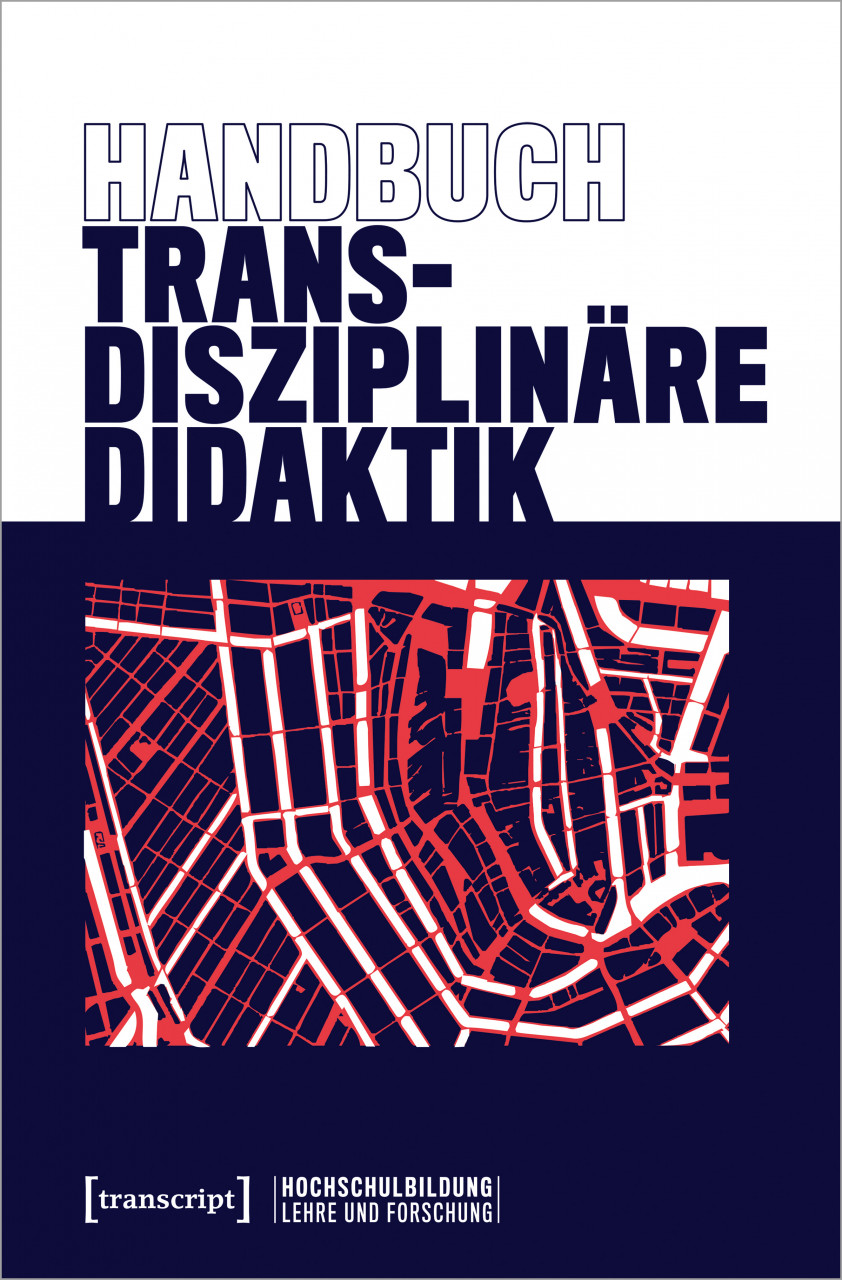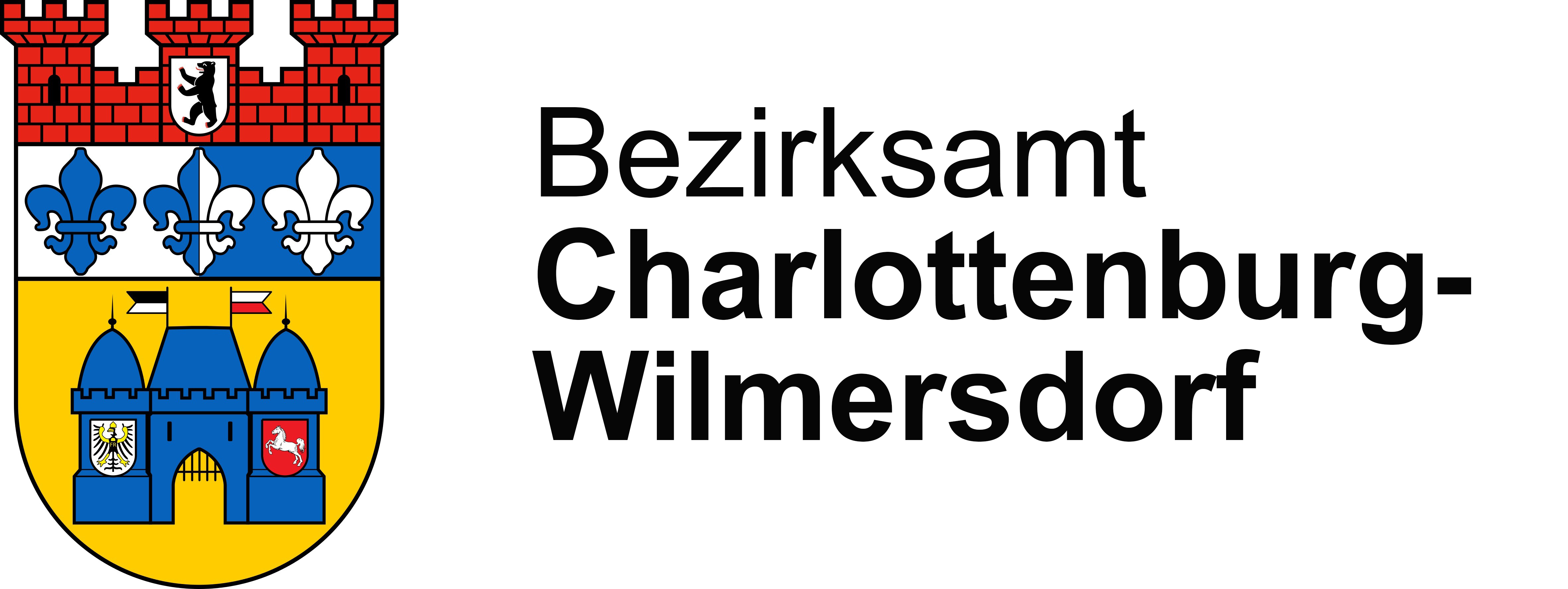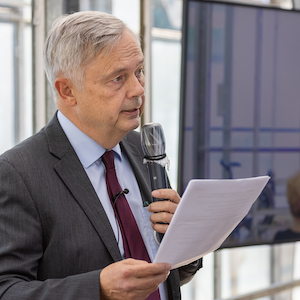Buchpräsentation “Handbuch Transdisziplinäre Didaktik”
Fachtagung und Buchpräsentation am 9. September 2021, ab 10 Uhr
Wie verändert sich die Hochschulbildung durch neue Formen des Forschens mit der Gesellschaft?

© TU Berlin
Die didaktischen Auswirkungen und Anwendungsbereiche der Transdisziplinarität, das heißt der gemeinsamen Forschung mit der Gesellschaft, werden im neu erschienenen „Handbuch Transdisziplinäre Didaktik“ aus unterschiedlichen Perspektiven erläutert. Auf einer Fachtagung mit anschließender Buchpräsentation beleuchten Prof. Dr. Christine Ahrend, Erste Vizepräsidentin der Technischen Universität (TU) Berlin, und weitere Expert*innen, wie sich Hochschulbildung von festen Orten, beispielsweise Hörsälen, löst und Wissen auf neue Weise produziert, verhandelt und verwandelt wird.
Berlin entwickelt sich zunehmend zu einem der zentralen Orte für gemeinsames Forschen mit der Gesellschaft. Anlässlich der Veröffentlichung des „Handbuchs Transdisziplinäre Didaktik“ lädt die TU Berlin gemeinsam mit der Universität Hamburg und dem transcript Verlag zu einem wissenschaftlichen Austausch über die Frage, wie sich eine im Wandel begriffene Hochschulbildung mit einer transformativen Wissenschaft verbinden lässt, ein. Wir laden Sie herzlich zur Fachtagung mit anschließender Buchpräsentation ein:
„Lehren und Lernen unter Bedingungen transformativer Wissenschaft: Ordnungsversuche im Panorama transdisziplinärer Didaktik“
Donnerstag, 9. September 2021
10:00 bis 16:30 Uhr: Fachtagung
17:00 bis 22:00 Uhr: Buchpräsentation
Link zur Pressemitteilung
Die Veranstaltung findet als Hybrid-Format in Präsenz und im Livestream im BHROX bauhaus reuse statt, dem gläsernen Pavillon und transdisziplinären Zentrum auf der Mittelinsel des Ernst-Reuter-Platzes in Berlin, das in Kooperation mit dem Bezirk Charlottenburg-Wilmersdorf ein Stadtlabor und eine Plattform für modellhafte Projekte mit der TU Berlin, UdK Berlin und weiteren engagierten Partner*innen anbietet. Pressevertreter*innen sind eingeladen, vor Ort teilzunehmen. Interessierte Student*innen und Akteur*innen, die die aktuellen Veränderungen der Hochschulbildung verstehen möchten, sind herzlich zum Zuhören und Mitdiskutieren via ZOOM oder Youtube eingeladen. Um Anmeldung wird gebeten unter: fabien.j.boettcher@tu-berlin.de. Registrierten Teilnehmer*innen wird der Zugangslink zum ZOOM-Meeting per E-Mail zugesandt.
Dr. Thorsten Philipp, Referent Transdisziplinäre Lehre, Präsidium der TU Berlin, und der Bildungsforscher Dr. Tobias Schmohl, Senior Researcher am Hamburger Zentrum für Universitäres Lehren und Lernen der Universität Hamburg, sind die Herausgeber des Buches.
Im Fokus des Wissenschaftsdialogs von 10:00 bis 16:30 Uhr stehen die Ansätze zur Verankerung von Forschung in der Gesellschaft, die die Praxis von Lehre und Studium aktuell grundlegend verändern: Waren bis zur Jahrtausendwende noch Hörsäle und Seminarräume die wichtigsten akademischen Lernorte, so wird Hochschulbildung heute in zunehmendem Maße verknüpft mit Schlagworten wie FabLabs, Reallaboren, Service Learning und Citizen Science.
Um 17:00 Uhr wird Prof. Dr. Thomsen, Präsident der Technischen Universität Berlin, das erste Exemplar des „Handbuchs Transdisziplinäre Didaktik“ entgegennehmen und die Buchpräsentation eröffnen. Es erwarten Sie Grußworte von Prof. Dr. Christine Ahrend, Erste Vizepräsidentin für Forschung, Berufungsstrategie & Transfer der TU Berlin. Eine Festrede des Soziologen Prof. Dr. Dirk Baecker, Universität Witten/Herdecke, erläutert den Wandel des Wissenschaftssystems und seine Folgen auf die Art, wie wir Hochschulbildung zukünftig denken können.
Das Handbuch ist ein Nachschlagewerk für Student*innen, Dozent*innen, universitäre Kooperationspartner*innen und alle, die sich für aktuelle Umbrüche von Forschung und Lehre interessieren. Unter Beteiligung von 48 ausgewiesenen Expert*innen und 35 wissenschaftlichen Gutachterinnen* erläutert es die Grundlagen einer Hochschulbildung, für die die wissenschaftsgeleitete Zusammenarbeit mit Akteur*innen der Praxis den Normalfall bildet. Es soll zu einer gemeinsamen Begriffswelt beitragen: Was genau ist ein Reallabor? Wie funktioniert Service Learning? Wozu dienen Praktikum, Citizen Science, also Bürger*innenforschung, und Duales Studium? Entstanden mit Unterstützung der Berlin University Alliance bildet die Publikation den ersten Band der neuen Publikationsreihe „Hochschulbildung und Forschung“ des transcript Verlags.




